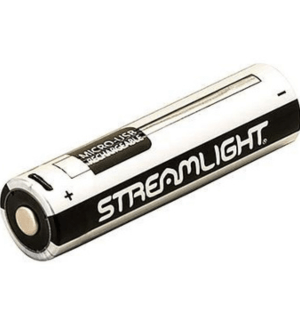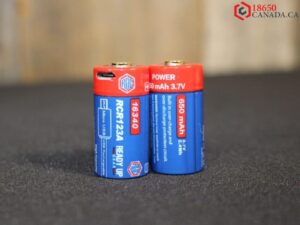In today’s fast-paced world, energy storage plays a crucial role in various industries and applications. Two commonly used battery types are lithium-ion and lead-acid batteries. These batteries differ in terms of technology, performance, and applications. In this article, we will explore the strengths and weaknesses of both lithium-ion and lead-acid batteries to determine which one is better suited for different scenarios.
Understanding Lithium-Ion Batteries
What ALithium-Ion Batteries?
Lithium-ion batteries are rechargeable energy storage devices that use lithium ions to move between the positive and negative electrodes. These batteries are widely used in portable electronics, electric vehicles, and renewable energy systems due to their high energy density and lightweight design.
How to do Lithium-Ion Batteries Work?
Lithium-ion batteries are comprised of three essential components: a cathode, an anode, and an electrolyte.
During charging, lithium ions move from the cathode to the anode through the electrolyte, storing energy. When discharging, the ions flow back to the cathode, releasing stored energy.
Advantages of Lithium-Ion Batteries
Lithium-ion batteries present numerous benefits that surpass those of lead-acid batteries:
Increased energy density: Lithium-ion batteries exhibit an enhanced energy density, allowing for the storage of a greater amount of energy within a compact and lightweight design.
Extended longevity: In comparison to lead acid batteries, lithium-ion batteries typically offer an extended lifespan, characterized by a greater number of charge-discharge cycles before experiencing significant degradation.
Higher efficiency: Lithium-ion batteries are more efficient at storing and releasing energy, resulting in less wasted power during charging and discharging.
Faster charging: Lithium-ion batteries can be charged at a faster rate compared to lead-acid batteries.
Low maintenance: Unlike lead acid batteries, lithium-ion batteries do not require regular maintenance such as topping up electrolyte levels.

Understanding Lead Acid Batteries
What Are Lead Acid Batteries?
Lead acid batteries are the oldest type of rechargeable batteries and have been used for decades. They consist of lead plates, a sulfuric acid electrolyte, and a container. Lead acid batteries are commonly found in automotive applications and backup power systems.
How Do Lead-Acid Batteries Work?
Lead acid batteries rely on a chemical reaction between lead plates and sulfuric acid to generate electrical energy. During discharge, the lead plates react with the sulfuric acid, producing lead sulfate and releasing electrons. When charging, the process is reversed, converting lead sulfate back into lead plates and sulfuric acid.
Advantages of Lead-Acid Batteries
Lead acid batteries possess distinctive merits of their own:
Lower cost: Lead-acid batteries are generally more affordable than lithium-ion batteries, making them a popular choice for cost-sensitive applications.
Robustness: Lead acid batteries are known for their ruggedness and ability to withstand harsh conditions, making them suitable for demanding environments.
Availability: Lead acid batteries are widely available and have an established infrastructure for recycling and disposal.
Comparison Between Lithium-Ion and Lead Acid Batteries
When comparing lithium-ion and lead acid batteries, several factors come into play:
Energy Density
When comparing lithium-ion batteries to lead-acid batteries, one notable distinction is the superior energy density exhibited by lithium-ion batteries. This means they can store more energy per unit volume or weight, making them ideal for applications where space and weight are limited.
Lifespan
Lithium-ion batteries typically boast an extended lifespan in comparison to lead-acid batteries, ensuring prolonged usability and durability. They can endure more charge-discharge cycles before their capacity significantly degrades. Lead acid batteries, on the other hand, may require more frequent replacements.
Efficiency
Lithium-ion batteries are more efficient at storing and releasing energy compared to lead-acid batteries. This results in less wasted power and improved overall efficiency.
Charging Time
Lithium-ion batteries can be charged at a faster rate than lead-acid batteries. This reduces the charging time and allows for quicker deployment in time-sensitive applications.
Maintenance
Lead acid batteries require regular maintenance, including monitoring electrolyte levels and periodically topping them up. In comparison, lithium-ion batteries require minimal maintenance, offering users a nearly maintenance-free experience.
Applications of Lithium-Ion and Lead Acid Batteries
Both lithium-ion and lead acid batteries find applications in various industries:
Automotive Industry
Lithium-ion batteries are widely used in electric vehicles (EVs) due to their high energy density and longer lifespan. Lead acid batteries are still utilized in traditional internal combustion engine vehicles and some hybrid vehicles.
Renewable Energy Systems
Lithium-ion batteries are preferred for storing energy in solar power systems and wind farms. They can efficiently store energy generated from renewable sources and release it when needed. Lead acid batteries are also used in smaller-scale renewable energy applications.
Portable Devices
Lithium-ion batteries dominate the portable electronics market. They power smartphones, laptops, tablets, and other portable devices due to their high energy density and lightweight design. Lead acid batteries are not suitable for these applications due to their larger size and weight.
Industrial Applications
Lead acid batteries are commonly used in backup power systems for industrial applications, providing reliable energy storage during power outages. Lithium-ion batteries are also finding their way into industrial settings due to their superior performance and longer lifespan.
Environmental Impact
Lithium-Ion Batteries
The production and disposal of lithium-ion batteries have environmental implications. Lithium extraction can have detrimental effects on water sources and ecosystems. However, advancements in recycling and responsible disposal practices are helping mitigate these concerns.
Lead Acid Batteries
Lead acid batteries pose environmental hazards due to their lead content. Improper disposal practices have the potential to result in contamination of soil and water sources. However, lead-acid batteries have a well-established recycling infrastructure, reducing their environmental impact.
Safety Considerations
Lithium-Ion Batteries
Lithium-ion batteries can be prone to thermal runaway, which can result in fires or explosions if not handled properly. However, manufacturers have implemented safety features and improved battery management systems to mitigate these risks.
Lead Acid Batteries
Lead acid batteries are generally considered safer than lithium-ion batteries. They possess a reduced likelihood of experiencing thermal runaways, making them less prone to fire incidents or explosions. However, exposure to sulfuric acid can be hazardous if not handled with care.
Cost Comparison
Initial Cost
Lead acid batteries have a lower initial cost compared to lithium-ion batteries. This makes them more appealing for applications with budget constraints or where the upfront investment needs to be minimized.
Long-Term Cost
Although lithium-ion batteries have a higher initial cost, they often provide better long-term cost efficiency due to their longer lifespan, higher energy density, and lower maintenance requirements. Lead acid batteries may require more frequent replacements, increasing their long-term cost.
Final Thoughts
The choice between lithium-ion and lead-acid batteries depends on specific application requirements. Lithium-ion batteries excel in terms of energy density, lifespan, efficiency, and faster charging, making them a preferred choice for electric vehicles, portable electronics, and renewable energy systems. On the other hand, lead acid batteries offer lower cost, robustness, and a well-established infrastructure for recycling and disposal. Factors such as environmental impact, safety, and long-term cost should also be considered when selecting the appropriate battery technology.
FAQs
Q: Which Battery is Better for Electric Vehicles?
A: Due to their enhanced energy density and extended lifespan, lithium-ion batteries find widespread application in the field of electric vehicles.
Q: Can Lead Acid Batteries be Used in Portable Devices?
A: Lead acid batteries are not suitable for portable devices due to their larger size and weight compared to lithium-ion batteries.
Q: Are Lithium-Ion Batteries More Environmentally Friendly?
A: While lithium-ion battery production and disposal have environmental implications, advancements in recycling and responsible disposal practices are helping mitigate these concerns.
Q: Do Lithium-Ion Batteries Require More Maintenance Than Lead-Acid Batteries?
A: No, lithium-ion batteries are virtually maintenance-free compared to lead-acid batteries, which require regular maintenance such as electrolyte level monitoring.
Q: Are Lead Acid Batteries Safer Than Lithium-Ion Batteries?
A: Lead acid batteries are generally considered safer than lithium-ion batteries, with a lower risk of thermal runaway. However, both battery types have safety features and require proper handling.

